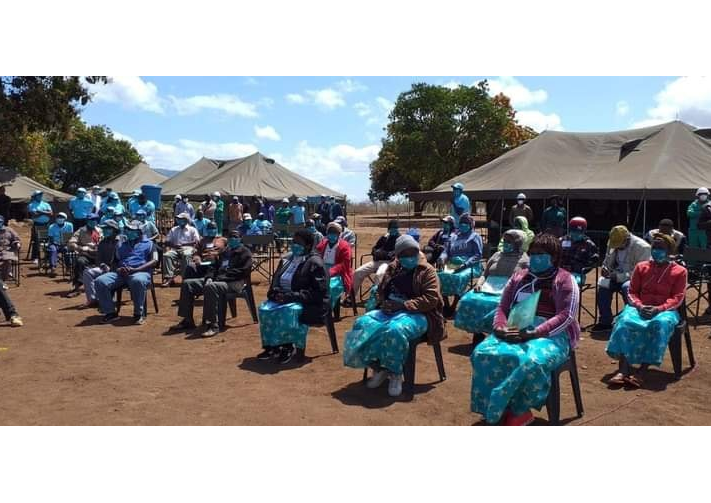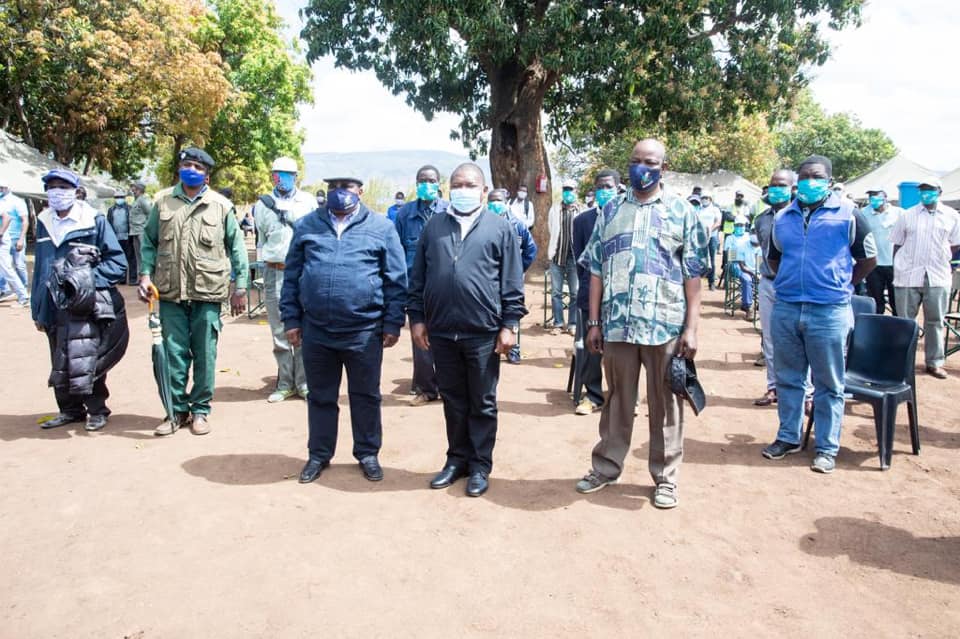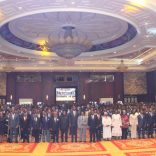Mozambique: Constitutional Council declines to hear appeal on Mondlane's party
Mozambique: Renamo women fighters demobilised

Photo: Renamo Moçambique / Facebook page
Mozambican President Filipe Nyusi said on Saturday that his government will do all in its power to ensure that the demobilisation and disarming of the militia of the main opposition party Renamo, and the reintegration of its members into society, takes place quickly, and without any setbacks.
He was speaking at Vunduzi, in the central district of Gorongosa, at a ceremony where 140 women Renamo fighters were demobilised.
According to a report in the independent daily “O Pais”, the ceremony took place at the Mapangapanga base (which Renamo called its “central base”). There are 434 former guerrillas at the base, including the 140 women who returned to civilian life on Saturday. Most of them have been in the Renamo militia for 30 years or more.
They were by no means all willing recruits. The “O País” reporter spoke with 48 year old Maria de Fátima Oliveira, who was kidnapped by Renamo in 1988, in an attack in Chibuto district in Gaza province, when she was just 16 years old. She was taken first to the main Renamo base in Gaza, and then to Maringue district in Sofala province, which was the Renamo headquarters for the closing years of the war of destabilisation.
When the war ended, with the general peace agreement of 1992, she was demobilised and returned to Chibuto. But she said that after some time, she felt that her situation had not improved, and decided to rejoin the Renamo militia.
Thus she is now being demobilised for the second time, and has obtained demobilisation pay twice. She had three children at the Renamo base, aged between 21 and 30. Only last year, after the signing of the Agreement on the Cessation of Hostilities, did her children return to her relatives in Chibuto.
Oliveira said that now she plans to become a farmer, and to build a house for herself and her children.
Nyusi promised the women that the government will do all it can to ensure that they are well received in their area of origin or anywhere else they may choose to settle, as Mozambicans who should contribute to the development of the country.
The Saturday ceremony was also witnessed by Renamo leader Ossufo Momade, and by Mirko Manzoni, the personal envoy to Mozambique of United Nations Secretary General Antonio Guterres, and the chairperson of the international Contact Group facilitating the dialogue between the government and Renamo.

Momade claimed that the women guerrillas were an example that “Renamo always prioritised gender equality on all fronts”. He described the women as “heroines who deserve to be well treated by everyone because today’s democracy in Mozambique is the fruit of their sacrifice”.
The demobilisation took place under the terms of the peace agreement that Nyusi and Momade signed on 6 August last year. The demobilisation has moved very slowly – before Saturday, only two Renamo bases had been dismantled and about 500 militiamen demobilised.
A complicating factor is the split within Renamo. A dissident faction calling itself the “Renamo Military Junta” has denounced Momade as “a traitor” and does not accept the peace agreement. It has continued to launch lethal ambushes against vehicles using the main roads in the central provinces of Manica and Sofala.
It is not known how many Renamo fighters support the Military Junta and its leader, Mariano Nhongo.












Leave a Reply
Be the First to Comment!
You must be logged in to post a comment.
You must be logged in to post a comment.